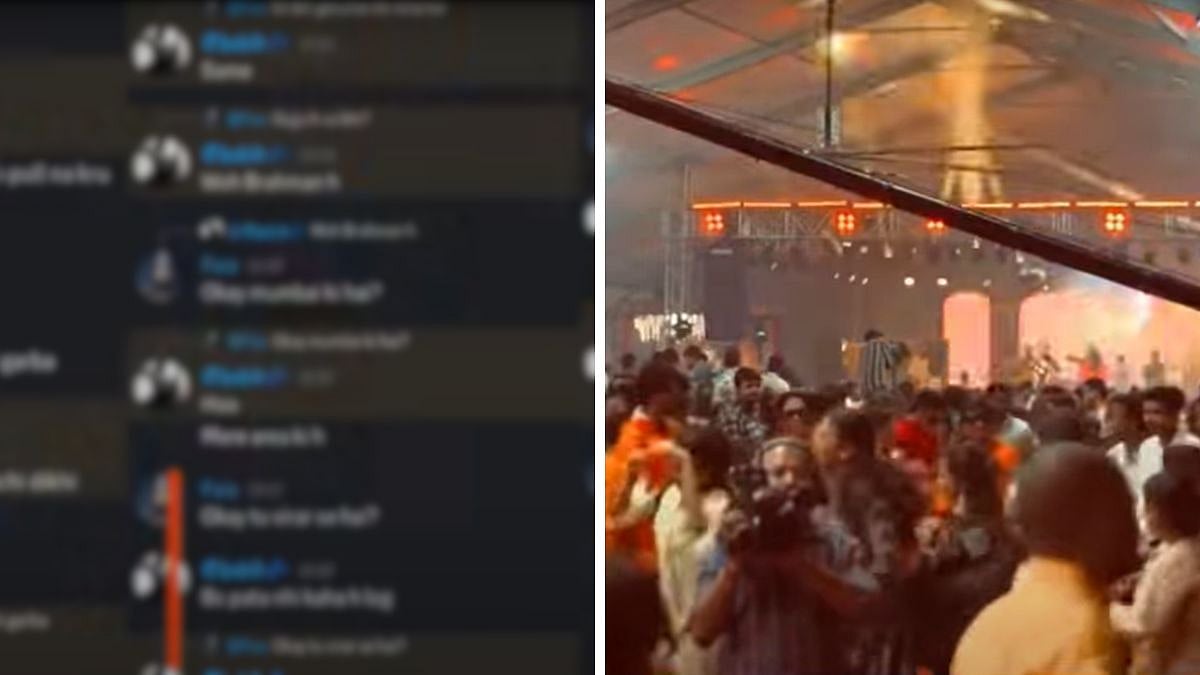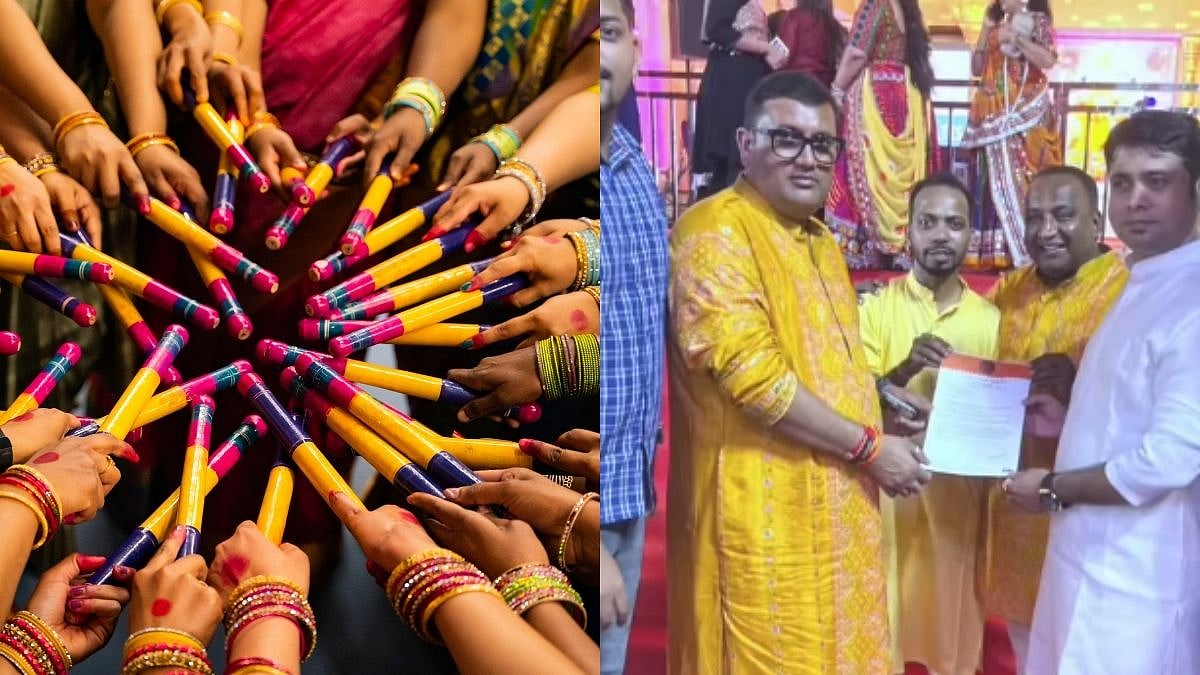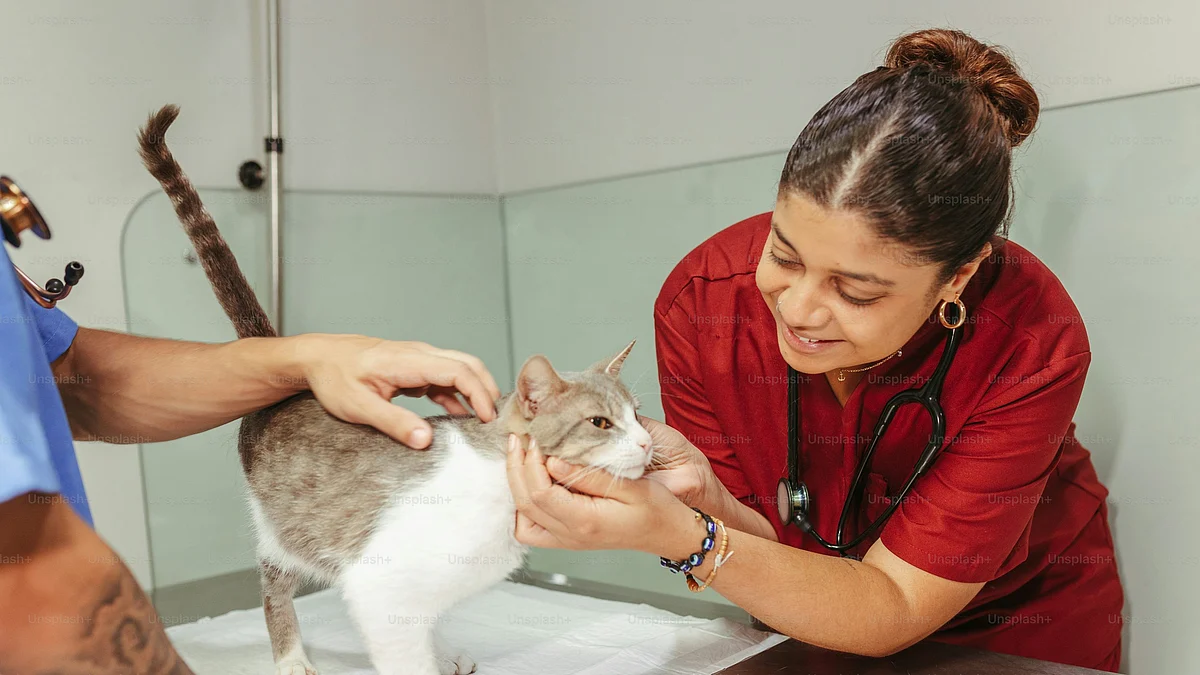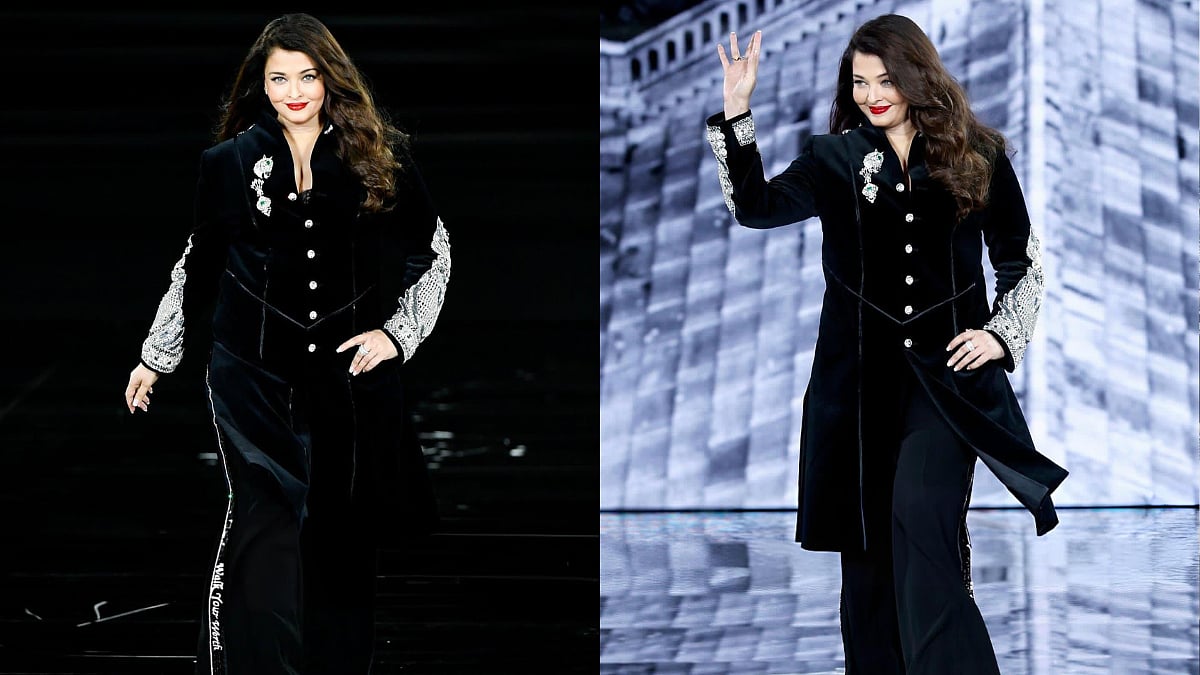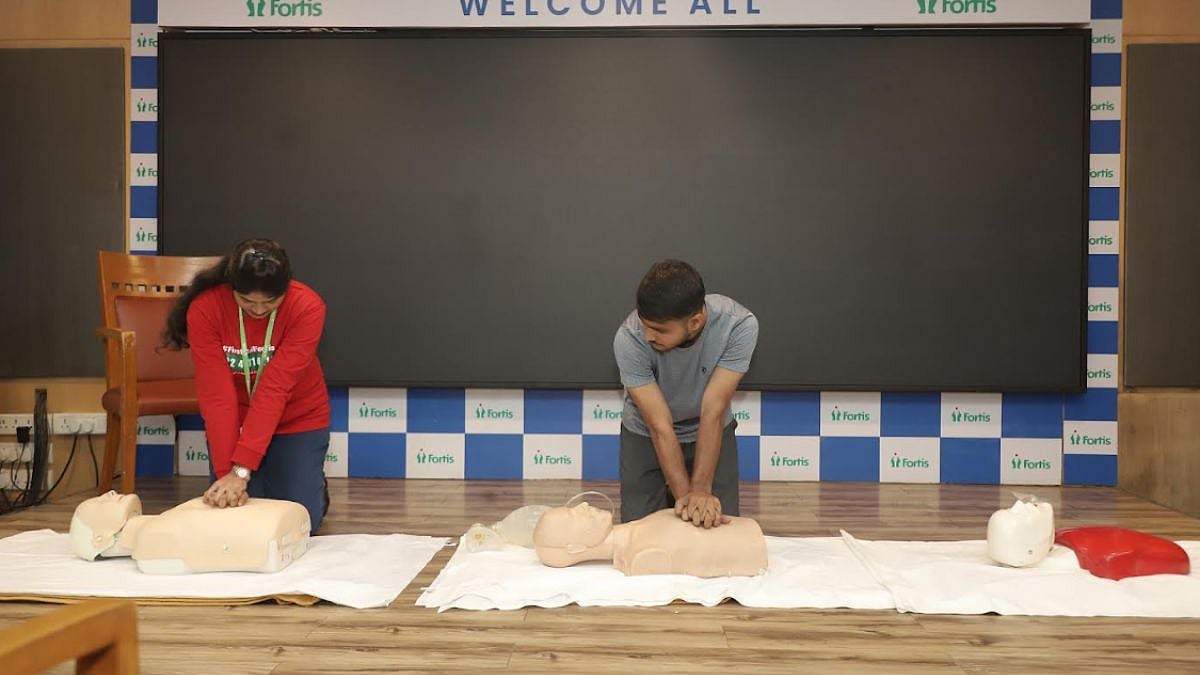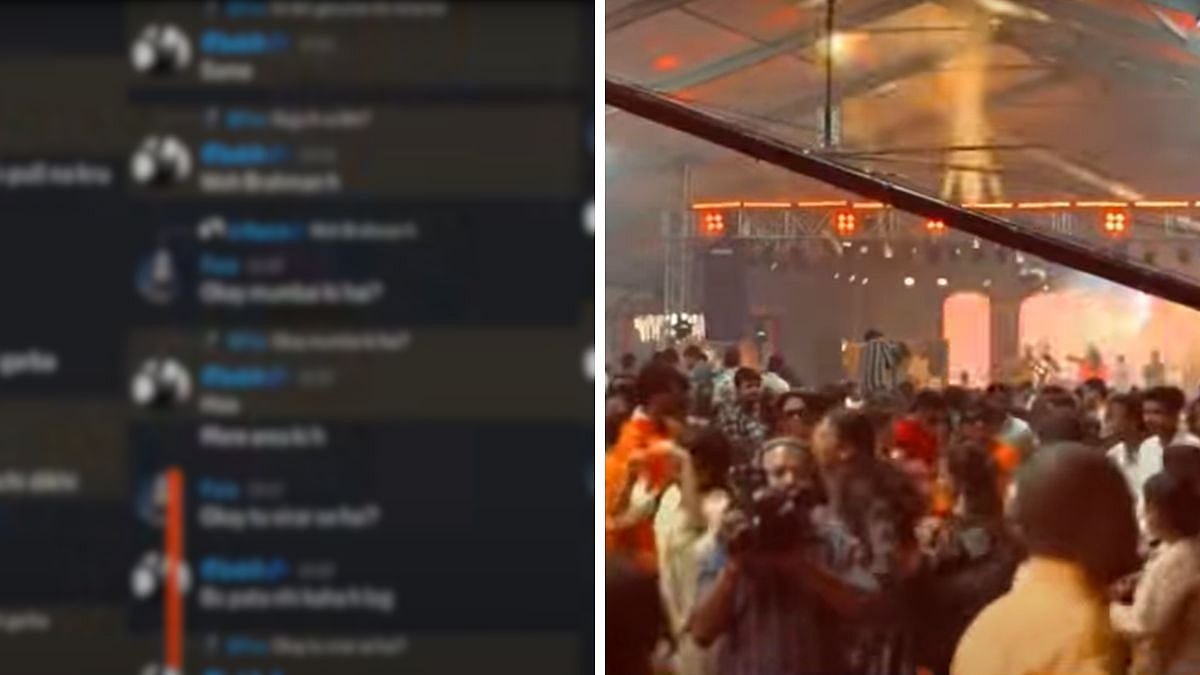Mumbai: A garba event at Viva College in Virar turned controversial after obscene chats allegedly involving two Muslim students surfaced on social media. The chats, which reportedly targeted two female students of the college, went viral after being circulated by BJP workers. Following this, BJP Yuva Morcha state secretary Ashok Shelke alleged that the incident was linked to 'love jihad,' intensifying political reactions around the matter.
The college administration immediately filed a formal complaint at the Bolinj police station, seeking legal action. According to reports, one of the students involved in the chats was identified and handed over to the police. The authorities have initiated the process of registering a case under charges related to hurting religious sentiments. However, the police have so far declined to make any official statement on camera.
Meanwhile, some student organisations and political groups have accused the police of inaction, claiming that despite three days passing since the complaint, no concrete steps have been taken. Representatives of these groups have announced that they will continue to sit outside the police station until action is initiated. College authorities, for their part, clarified that Viva College is an educational institution and not affiliated with any political organisation.
MNS Urges Garba Pandals To Play Marathi Songs During Navratri
Even as the controversy over the Virar incident unfolded, cultural demands around Navratri celebrations also came to the forefront in North Mumbai. The Maharashtra Navnirman Sena’s (MNS) student wing, Vidyarthi Sena, submitted a memorandum to Garba organisers in Borivali, Dahisar, and Charkop, urging them to include Marathi songs in Navratri festivities.
According to MNS leaders, while Garba has strong roots in the Gujarati community, the dance has also become popular among Maharashtrians in the northern suburbs. They pointed out that most events currently feature Gujarati and Hindi songs, leaving little room for Marathi music. The leaders argued that the recognition of Marathi as a classical language by the Government of India should also translate into greater representation of Marathi culture in public celebrations.
